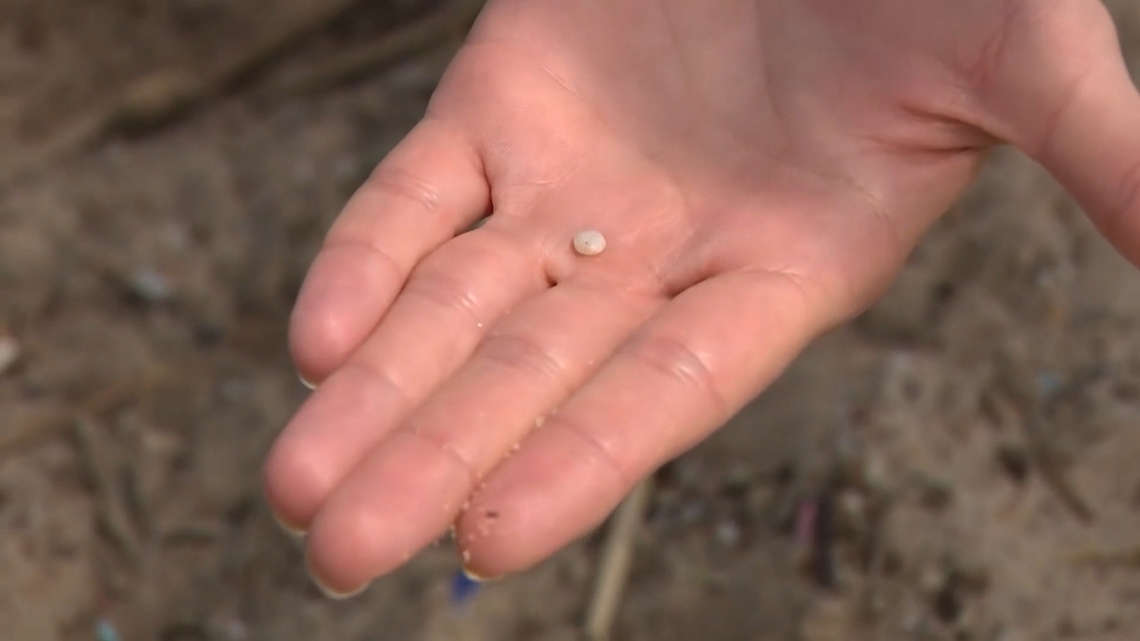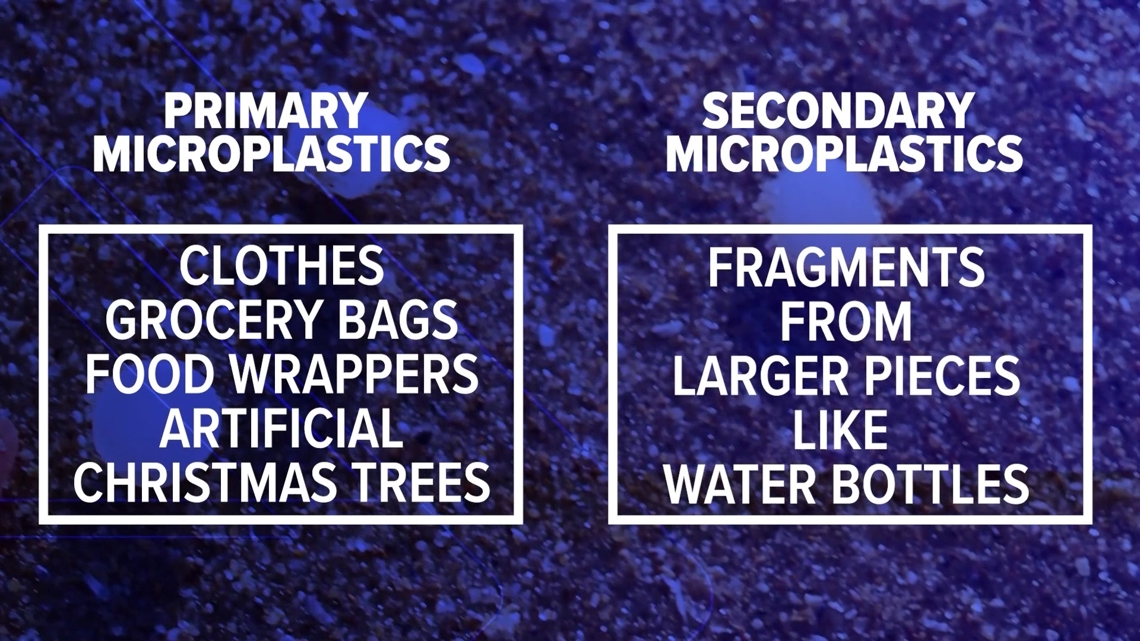GALVESTON, Texas — Among the trash that litters Texas beaches, is a true environmental disaster.
Billions of nurdles – pellets of pure plastic – continually wash up on Gulf Coast shores, including Sylvan Beach, where we met up with Lisa Scobel with the Galveston Bay Foundation.
“It’s about the size of a lentil and this is considered a primary plastic,” Scobel said. “It looks like a fish egg, so a lot of animals actually eat this because they think it’s a natural source of food.”
The pellets are tiny pieces of solidified oil produced by petrochemical companies. They often spill during transport, through trains or ships, and high winds and ocean currents spread the problem far and fast.
Scobel said that sometimes the pellets are intentionally dumped and little to no effort is made to clean up the ones that get away.
Nurdles are an example of a primary microplastic. Made less than five millimeters in size, they are melted down to make a variety of everyday items – from clothes to grocery bags, and food wrappers to artificial Christmas trees.
Secondary microplastics are fragments from larger pieces of plastic – like water bottles – that break down into smaller pieces; pieces so small, they’ve been detected throughout the human body – in blood, saliva, liver, kidneys, and even placenta.


Most recently, microscopic pieces of plastic were found in the clogged arteries of cardiac patients, according to a recent study published in The New England Journal of Medicine.
Dr. John Higgins, a noninvasive cardiologist with UT Health, says out of about 300 patients in the study, two-thirds of them had microplastics found in their arteries.
“The ones that did have them had higher rates of heart attack, stroke, and peripheral arterial disease,” Dr. Higgins said.
The chemicals in those foreign particles found by researchers were polyvinyl chloride – or PVC – and polyethylene, two of the most common materials used in household products, like water bottles and PVC pipe.
Dr. Higgins said scientists say while their presence in humans has been documented, it’s still unclear how they affect our health.
“Is this just something that came into your body and decided to settle down there, and is not doing anything?” Dr. Higgins said. “Or is this driving the inflammation, which is making the plaque worse and accelerates the growth of that obstruction?”
Dr. Higgins said while doctors can’t make outright recommendations just yet, it doesn’t hurt to make an effort to use less single-use plastic.
It’s a change that would not only affect human health but the environment as well.
“Ultimately Earth is our home,” Scobel said.
“I’m a really big believer in helping to do everything that we can to protect it.”


A lot of people feel overwhelmed when they hear about issues like this and may they think would my actions make a difference? The answer is, yes!
When it comes to your health, Dr. Higgins says simple changes can go a long way.
Don’t heat or reheat food in plastic containers – use glass containers instead.
Also, avoid drinking out of plastic water bottles, as much as possible.
If you’re interested in cleaning up our beaches, the Galveston Beach Foundation hosts nurdle clean-ups a few times a year and would love help from you.
Learn more about the Galveston Bay Foundation and what you can to help here.